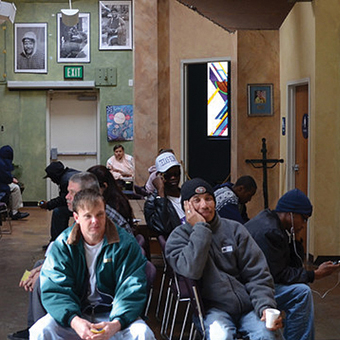Is the demand for ideological purity harming service to the poor?
Social service agencies may want to add a new background check if they receive funding from a Catholic source: The Diocese of Sacramento will no longer fund Francis House, a center that provides services for up to 25,000 people in need of food, shelter, and social services, because its new executive director, the Rev. Faith Whitmore, publicly endorsed same-sex marriage in 2008, witnessing the weddings of same-sex couples as pastor of St. Mark’s United Methodist Church when same-sex marriage was legal in California. She has also expressed support for Planned Parenthood, noting that although she is not “pro-abortion,” she supported the organization’s provision of health services to women in need.
As a shelter for people experiencing homelessness, Francis House does not, of course, offer same-sex weddings or provide abortions. The problem is simply that Whitmore, a Methodist minister working for a non-Roman Catholic social service agency—though one originally founded by a Catholic parish—publicly expressed opinions not in line with Catholic teaching on two controversial moral matters.
“I have never represented any of those positions on behalf of Francis House,” said Whitmore, according to the Sacramento Bee. “I was speaking as an individual.”
The diocesan director of social services, Father Michael Kiernan, however, said that Whitmore’s views made it “impossible for the diocese to continue funding Francis House” through its annual Catholic Appeal. A letter from the diocese noted that even though it didn’t expect the agencies it funds to promote Catholic teaching, it could not support agencies whose leaders publicly oppose it.
The diocese can, of course, decide which agencies to fund, and its $7,500 to $10,000 contribution will no doubt now go to some other charity.
At the same time, withdrawing a contribution because of the personal, previously expressed views of an employee on a completely unrelated matter signals a troubling turn in the relationship between the Catholic Church and the wider world. It especially highlights the growing influence of self-appointed watchdogs and arbiters of what is and isn’t “Catholic” on the church’s social mission.
Opponents of Catholic partnerships with non-Roman Catholic organizations have convinced many, including some bishops, that their narrow—some might argue sectarian—understanding of ideological purity should determine which agencies are appropriate for Catholic dioceses to partner with in common efforts toward social justice. These groups have effectively employed guilt-by-association tactics to smear the U.S. bishops’ Catholic Campaign for Human Development, resulting in some bishops declining to participate. Now it seems such efforts are affecting even agencies that offer the most basic direct services to those in need.
Sacramento’s move is also a further blow to partnerships with other Christians. With so many mainline and even evangelical Christians having discerned different responses to disputed moral questions such as abortion and same-sex marriage, how could any Catholic organization possibly partner in joint projects of Christian service?
It is one thing to insist on strict adherence in the public sphere to Catholic teaching for one’s own employees, but to impose it on others as a condition of partnership is a step too far. The Diocese of Sacramento’s decision is a poor one, pure and simple, reflecting the narrowest possible approach to Catholic engagement with the world around us. It is a choice that places ideology over service to those most in need, and it diminishes the church’s moral standing as an advocate for and servant to Jesus’ most vulnerable brothers and sisters.
We would do better to heed the long tradition of Catholic social teaching’s call for “all people of good will” to join together in service to the world—and especially to the poor—even and especially when we are divided on other important issues.
This article appeared in the May 2012 issue of U.S. Catholic (Vol. 77, No. 5, page 8).
Image: Clients wait at Francis House. Photo by Michael Miller













Add comment